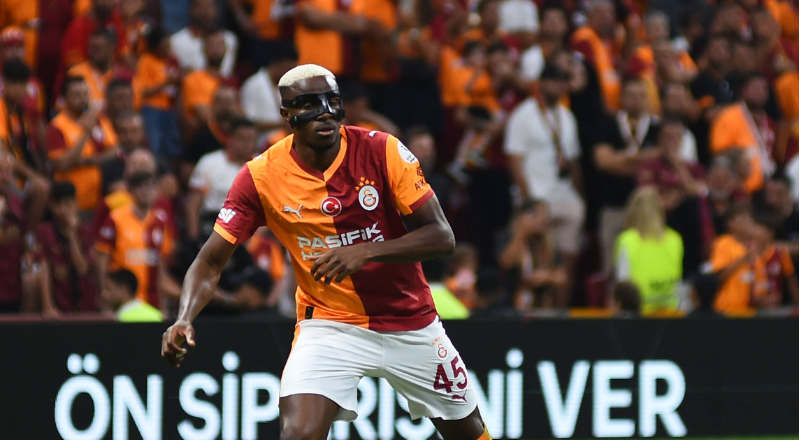The summer has been defined by Osimhen Transfer Speculations, yet beneath the gossip sits a very real story about ambition, risk, and the evolving economics of Turkish and European football. From Istanbul to Naples, Victor Osimhen’s name keeps shaping decisions, budgets, and dressing room dynamics, while fans queue for jerseys and clubs weigh new thresholds of spending.
Why Galatasaray paid a record fee
Galatasaray’s move for Victor Osimhen was seismic. The club committed €75 million in transfer fees and a further €21 million in net guaranteed emoluments, the biggest outlay by any Turkish club. The figure drew instant scrutiny at home, as it swallowed a major slice of the reported €130 million seasonal spending limit.
The decision also had immediate knock-on effects. Galatasaray paused other needs, most notably the pursuit of a goalkeeper, and they are trying to sign Ederson while struggling to match Manchester City’s valuation. The questions are obvious, but so is the intent, a squad built to compete, commercially and sportingly, with Europe’s heavyweights.
Serhat Ulueren’s case for the investment
Turkish football analyst Serhat Ulueren cut through the noise with a clear message, the market has changed and so must the mindset. He suggested the Galatasaray move is not reckless, but a calculated leap that mirrors a domestic industry now generating greater income streams.
“Revenue figures have increased in Turkish football. Because stadiums have grown, bets have increased. That’s why no one should say that the money spent is too expensive from now on.”
Ulueren’s numbers paint a stark picture of scale. “Galatasaray’s total revenue from the broadcaster is $17.1 million. This figure doesn’t even cover Osimhen’s VAT. Matches are very cheap to watch in Türkiye.” It is a reminder that broadcast cash alone cannot fund an elite squad, and that the club must leverage star power, ticketing, and merchandising to bridge the gap.
He added a broader context that speaks to the new Turkish competitive posture. “Galatasaray’s annual player expenses exceed $200 million. If you want to compete with the world’s giants, you have to take risks. Otherwise, you can’t compete with teams like City, Liverpool, or PSG.” The bet is that a marquee forward delivers goals, wins, and a global spotlight.
Even so, Ulueren acknowledged the gamble. “Signing Osimhen is a risk, but it’s not wrong. If you have players like Icardi, Osimhen, Sane, Sanchez, and Torreira in your squad, everyone will buy jerseys and season tickets, but I couldn’t buy my son a season ticket again because it sold out the day he was released.” The human detail, a parent shut out by demand, neatly captures the commercial magnetism that star signings create.
There is pressure too. “Okan Buruk and his management took a serious gamble with Osimhen’s transfer. If he fails in Europe, he’ll face heavy criticism.” The manager becomes the custodian of a costly vision, and the Champions League stage becomes the verdict that matters most.
Managing egos at the top of the attack
Money buys talent, but it does not guarantee harmony. Galatasaray’s delicate balancing act between Mauro Icardi and Victor Osimhen has drawn praise from Turkish commentator Rasim Ozan Kutahyalı, who argued the club set the right tone in the dressing room and in the media.
The backstory matters. Icardi was the face of a 100 point Super Lig title season, then the club rolled out the red carpet for a younger star. Osimhen took the baton, led Galatasaray to a league and cup double, and in Icardi’s absence after an ACL injury, he emerged as the team’s central figure. The shift could have sparked rivalry, yet it did not.
“Galatasaray manages these processes correctly. If Osimhen and Icardi were at Fenerbahçe, there would definitely be a fight. They wouldn’t be able to bear the weight of two stars. Osimhen became such a star that kids started naming him, but I didn’t see a single ounce of jealousy in Icardi.”
Rasim also highlighted Icardi’s leadership and tact in public comments. “I listened to Icardi’s statements at Galatasaray. He spoke very truthfully about Kerem Aktürkoğlu. He was like a true politician.” The suggestion is that cultural stewardship inside the squad is as critical as tactical clarity on the pitch.
That observation extended into a provocative hypothetical. A Turkish football expert claimed Jose Mourinho’s Fenerbahce would struggle to manage two such central forwards at once. The comparison flatters Galatasaray’s hierarchy and reinforces a theme, that superstar combinations need careful architecture, transparent roles, and consistent communication to thrive.
Napoli’s search and the Osimhen void
The transfer ripples reached Italy as well. Napoli, who sold Osimhen to Galatasaray for €75 million this summer, are back in the market for a striker after Romelu Lukaku suffered a muscle injury that will sideline him for around three months. The timing is awkward for a squad that had looked settled after adding Lorenzo Lucca from Udinese.
The picture grew thinner when Giacomo Raspadori left for Atletico Madrid. As things stand, Napoli will enter their 2024 or 2025 Serie A opener against Sassuolo with Lucca, Walid Cheddira, and Giuseppe Ambrosino as centre forward options. For a club recalibrating after a title winning era, the absence of Osimhen’s profile and punch is impossible to ignore.
It is tempting to call it an Osimhen curse, but the reality is simpler. Elite strikers are scarce, expensive, and often the difference between challenging and chasing. Injuries, like Lukaku’s setback, compound the challenge, and can turn a tidy summer plan into an urgent search.
The stakes for Okan Buruk and Europe
Within Istanbul, the competitive bar is set by Europe’s giants, not only by local rivals. Ulueren’s framing speaks to a club that wants to sell the game and win at the same time, a delicate balance that intensifies scrutiny on Okan Buruk’s choices. Every tactical tweak, every rotation, every substitution will be read through the lens of value and return.
European nights amplify narratives. If Osimhen fires Galatasaray forward, he justifies the financial stretch and cements the club’s strategy. If he struggles, the conversation swings back to opportunity cost, the goalkeeper conundrum, and the budget lines that were pushed to the brink. In that arena, patience is rarely afforded to expensive dreams.
The economics behind the gamble
At the heart of the debate are the numbers that Ulueren cited, from $17.1 million in broadcast revenue to annual player expenses north of $200 million. Those figures expose a business model that must rely on more than television cash, which he argues is low relative to cost and even to tax burdens like VAT on a superstar deal.
The antidote, in this view, is star-led growth. When season tickets sell out on day one and parents miss out, that surge is evidence of elastic demand. Shirts fly, sponsorship pitches land with more weight, and international attention helps the club bargain better in the marketplace. The calculus assumes that a player like Osimhen is not just a scorer, he is an ecosystem.
For the league, the symbolism matters too. If Turkish clubs can compete for name brand talent, they can tilt the conversation about where top players go at their peak. That ambition carries costs, and the margin for error is thin, but it also reshapes how the Super Lig presents itself to fans and partners around the world.
What it tells us about modern squad building
Galatasaray’s example underscores three intertwined truths about elite team building, the transfer fee is only the headline, the dressing room is the engine, the continental stage is the judge. Each one speaks to why this story reverberates beyond Turkey.
- the financial leap must be paired with a commercial plan that harnesses star power,
- the coexistence of forwards like Icardi and Osimhen demands strong communication and role clarity,
- results in Europe will validate or vilify the gamble.
What to watch next
Three fronts now define the near term picture. First, Galatasaray’s goalkeeping search remains unresolved as they try to sign Ederson while wrestling with Manchester City’s demands. Second, Okan Buruk’s integration plan, from how he pairs or alternates his strikers to how he preserves squad buy-in, will shape the season’s tone. Third, Napoli’s market move to cover Lukaku’s absence will tell us how quickly a champion adjusts to sudden scarcity up front.
Strip away the noise and what remains is the same calculus that drives the modern game. Pay for elite talent, then prove you can make it sing. In Istanbul, they have bet that Victor Osimhen is worth the risk, commercially and competitively. In Naples, they are feeling how hard it is to replace a profile like his, even temporarily. Between those poles lies the real story of this summer.
The human side of the headline
Ulueren’s anecdote about missing out on a season ticket for his son captures the essence of sport as a shared ritual. It is not only a spreadsheet debate, it is about the rush at the turnstiles, the chant that starts behind the goal, the child who asks to wear a new number because a new hero arrived. That is the power clubs chase when they go big.
Rasim’s praise for Icardi’s tone captures the other half of the equation. When the older star shows grace, the dressing room breathes easier, the supporters sense unity, and the new striker can focus on the net rather than the narrative. In that light, Galatasaray’s management of personalities becomes as pivotal as any balance sheet maneuver.
So the conversation about Osimhen continues, from talk shows to terraces. The fee is a headline, the quotes are fuel, and the results will be the verdict. If the plan comes together, it will be remembered as a watershed moment for a club and a league that chose to stretch. If not, it will be a lesson about limits. Either way, the stakes are unmistakable, and the football world is watching.





